Growing up alone with Dad: What’s life like for a single father in Russia?
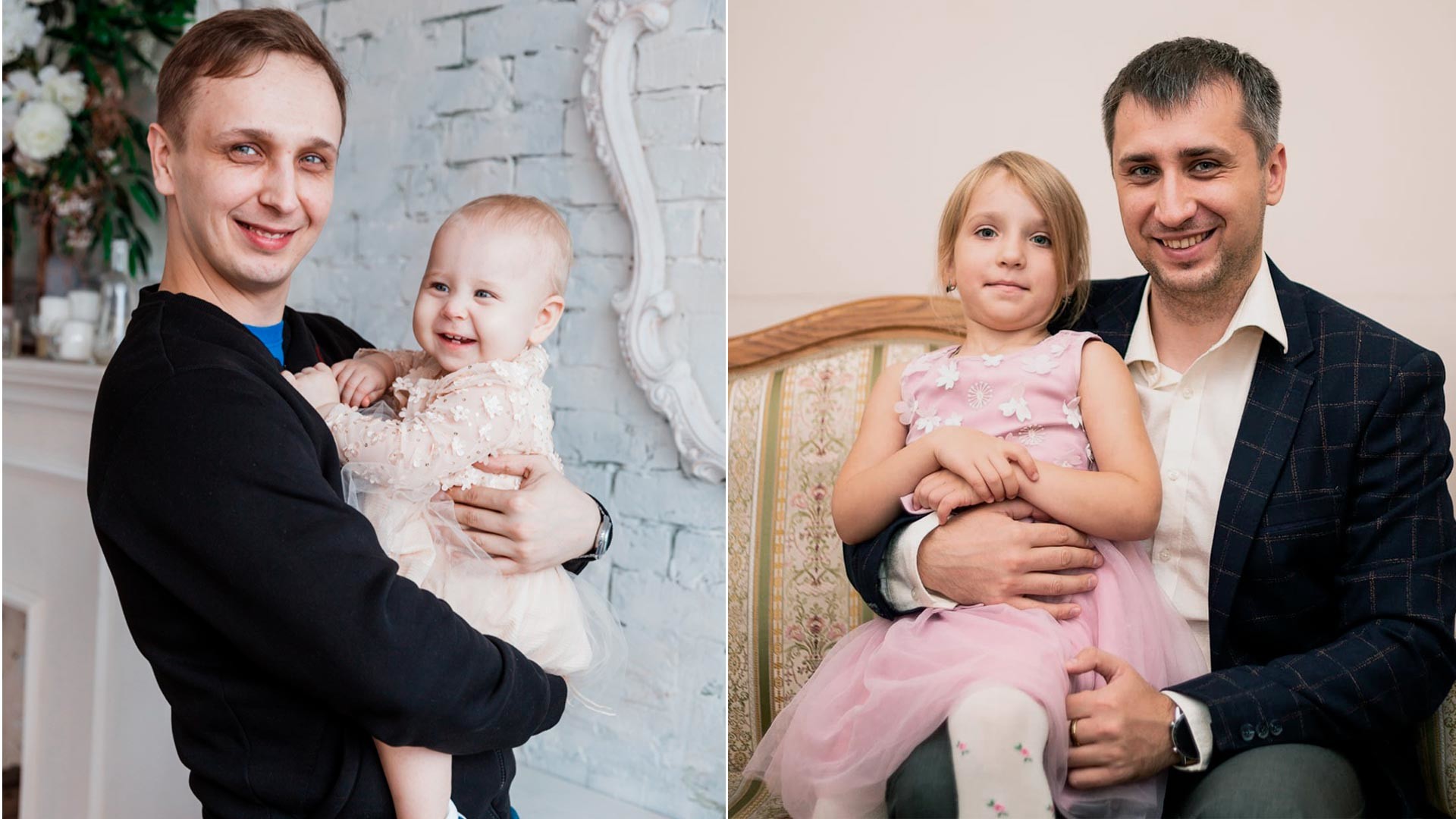
The photo shows an ordinary kitchen in a St. Petersburg apartment and a seemingly ordinary family evening. A blonde girl, Veronica, together with her mother, Yulia, a tall, slender brown-haired woman, are making cookies. The viewer is struck by Yulia's pale, almost translucent skin and dark circles under her eyes. The angle of the lens hides her large belly. She is not pregnant, however.
“We returned home after the New Year holidays. I thought, 'Why don't we bake cookies together?' It's so cute. I made dough for cookies, called Yulia, and suggested we take a picture of the three of us together, but she refused,” Vladimir Kaizumov, 30, the head of the family, recalls the history behind this photo. “Then I told her: 'We don't know what will happen to you next, what if everything turns out to be bad, our daughter should at least remember something about you!' In the end, the two made cookies together, and when I look at these photos, I think that those words of mine turned out to be prophetic."
In early 2019, Yulia was diagnosed with duodenal cancer. After several courses of chemotherapy and a six-week break, she developed ascites, and her stomach began to swell.
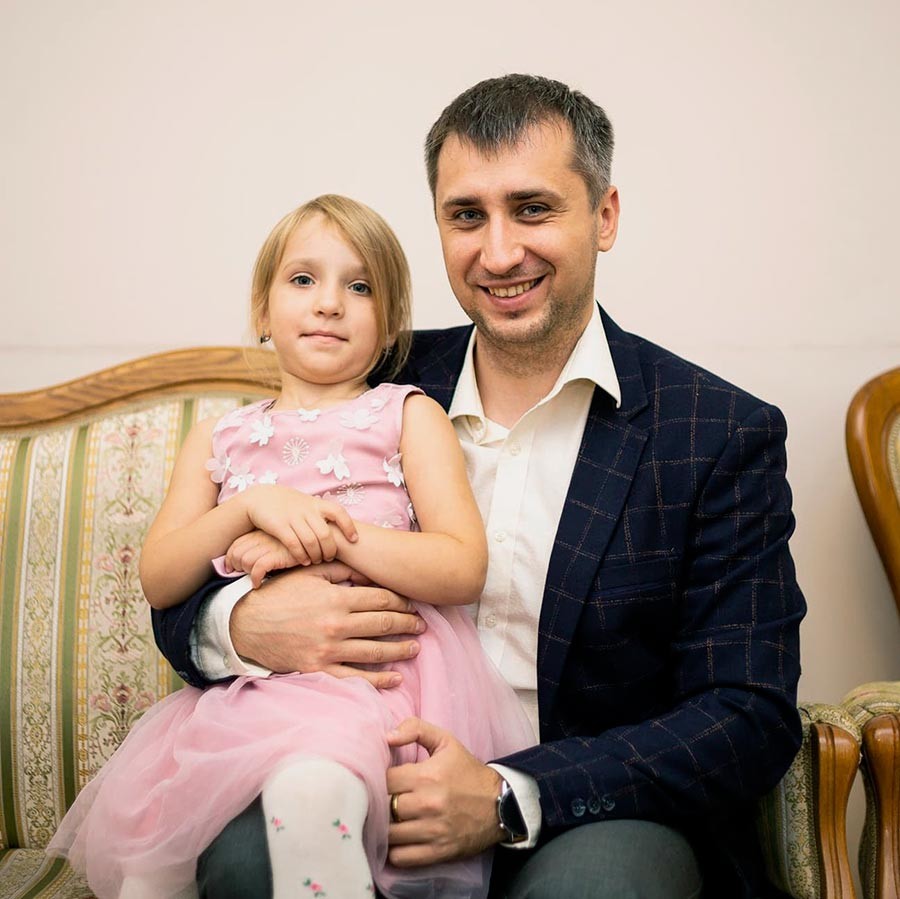
A year later, in January 2020, three-year-old Veronica was making cookies with her mother for the first and last time. She went on to make her first robot in a robotics class with her father, and received her first ballroom dancing cup also with him. Her mother saw none of this because she died a few months after that photo was taken and Vladimir became a single father.
There is no concept of "single father" in Russian law, but there are 650,000 men with that status in the country, the Rossiyskaya Gazeta newspaper reported in 2021, citing Rosstat data. All fathers who are single parents and who can create the necessary living conditions for their children are entitled to the same benefits as single mothers, lawyer Yuri Kapshtyk said.
At the same time, the number of families consisting of single fathers with children is slowly growing in Russia: from 1.18 percent of all families in 2002, to 1.27 percent in 2010.
“Of course, for a child, living in a single-parent family is difficult and undesirable, but one could say that fathers are becoming more responsible, and society has become more likely to entrust children to them,” the media office of the All-Russia Population Census told TASS.
Death and cartoons on a tablet
“When we learnt that Yulia was sick, Veronica was just two and a half years old, an age when she constantly demanded attention. But it was difficult to give her enough attention when the mother was sick, and the father was doing his best to try and make his wife's life easier. I took her to kindergarten, to all her children's clubs, and to all her questions about what was happening, I just kept saying: 'Mummy is sick, Mummy is sick, Mummy is sick',” Vladimir recalls.
In Yulia's final month, when she could no longer eat or walk without pain and at times became aggressive because of all the strong prescription drugs, Vladimir tried to distract Veronica by showing her cartoons on a tablet and taking her for long walks. When his wife passed, after consulting a psychologist, he told Veronica that her mother had died.
“Then I had to repeat this thought to her, as for a while she believed that her mother might still return. It was hard, but I couldn't think about my own mental health, I had to support Veronica,” Vladimir says, his voice trembling.
After the funeral, he and his daughter spent the entire summer of 2020 with his parents in the Voronezh Region. Then they returned to St. Petersburg, he got a job and applied for state benefits that his daughter was entitled to, having lost her mother (9,000 rubles a month, or $125). He began to teach his daughter to look after herself and her things, and enrolled her in several children's classes and clubs. Veronica expressed an interest in various hobbies.
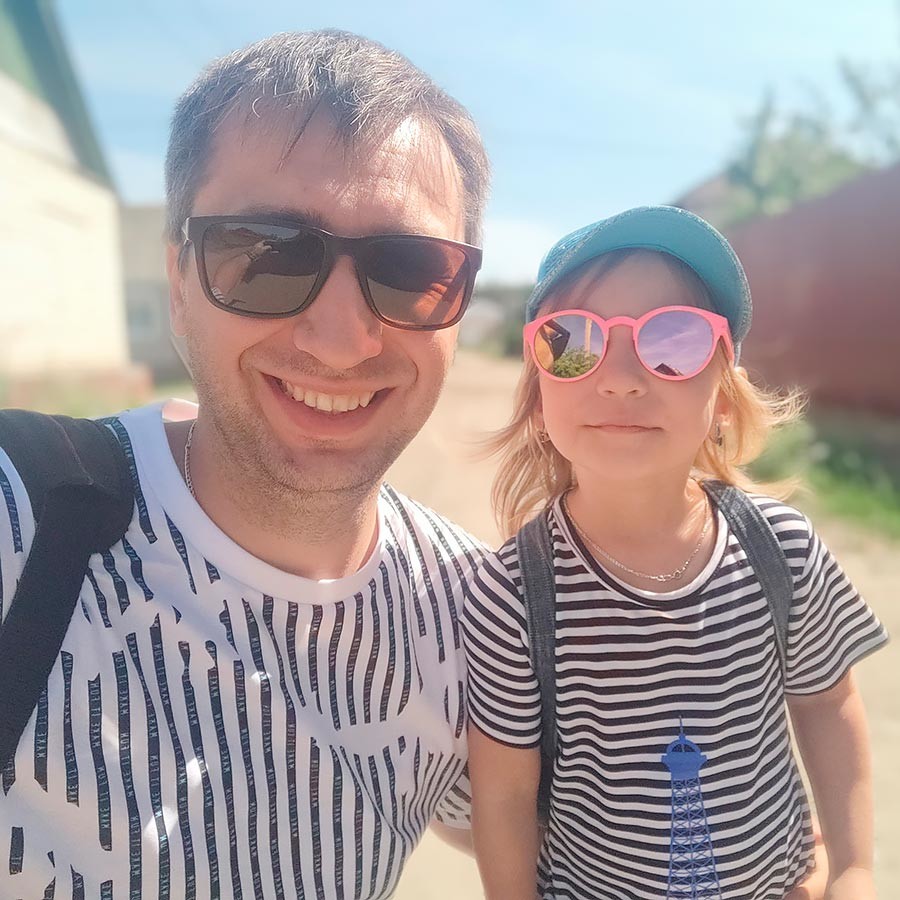
For a while after her mother's death, the girl was afraid of going to sleep alone. Another problem was Veronica's hyperactivity and aggressive reaction to children at kindergarten who poked their fingers at her and said: “Hey, your mom is dead!”
“I try to distract my daughter with chatter, and then send a message to the children's parents to teach their kids how to behave. If she offends someone, I explain how to behave. My goal is to make sure that she grows up as an ordinary child, so that she does not compensate for the absence of a mother's love with aggression,” says Vladimir.
When asked about his own emotional state, he sums it up in one word: "Desolation."
“Desolation came a week later, when I received the urn. It became clear that everything was 100% over. That feeling has not completely left me, because it is impossible to lose a part of yourself and remain the same. But I try, and I hope I am doing everything right,” he concluded.
“I didn't drink, I didn't beat her, but shit happens”
“Let me tell this lady how wonderful you are, and then you and I will continue to sculpt a cat,” Vladimir Savchenko, 33, an internet provider help desk agent from Omsk, is trying to record a voice message for me with answers to my questions. From time to time, he puts the recording on hold as his daughter, four-year-old Sofia, keeps shouting into the receiver, seeking to attract attention.
Vladimir fell in love with his future wife, Yelizaveta, at first sight. He was 27 at the time, and she was 19. In 2016, they started dating, and a year later they had a daughter. Sofiawas born with a hemorrhage in the skull that was surgically removed. At the age of six months she was diagnosed with a patent foramen ovale, and at the age of one, she developed a squint and several other physical disabilities. In order to spend more time with his family, Vladimir took paternity leave for a year and a half, receiving 7,000-9,000 rubles a month (from $97 to $125).
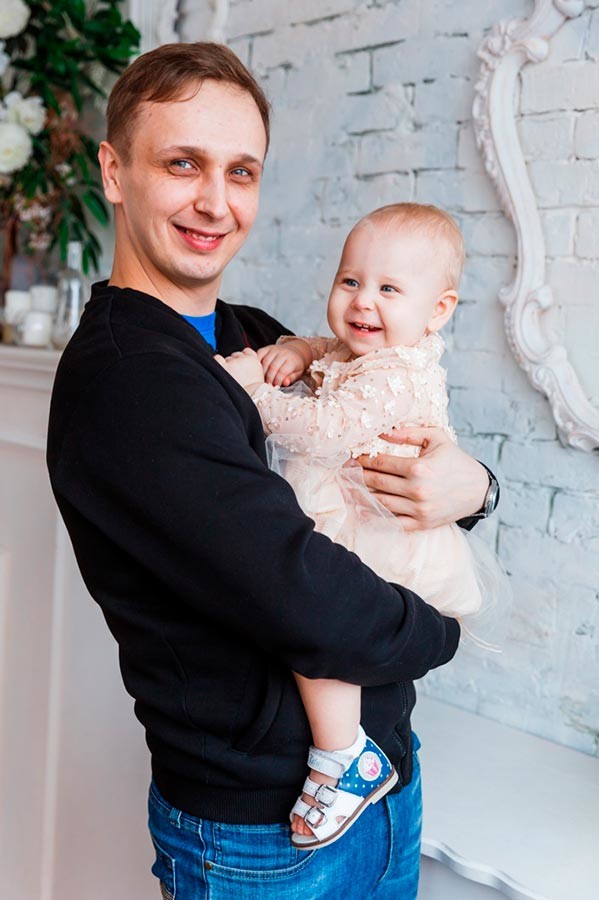
When Sofia was a little over a year old, his wife took her to visit her parents to celebrate New Year 2019. During the holiday, she called her husband to tell him: “I’m tired, I can’t take it anymore, I should have had an abortion.” A couple of days later, Yelizaveta returned to Vladimir, left Sofia with him and went to live with her parents.
“Like everyone else, we sometimes quarreled about everyday things, but we didn’t hate each other. It was ordinary family life. When she told me that, I answered: 'Why are you talking such nonsense?' I hoped that when she came home, we would talk and the situation would be resolved, but alas. Maybe she was having postpartum depression, and I missed it, who knows,” says Vladimir.
In April, he filed for divorce. He says there was no red tape. A month later, the court ruled that his ex-wife should pay him alimony. However, she doesn’t pay him anything and takes no interest in Sofia’s life.
Problems began almost immediately: Vladimir found it hard to combine work, even though he worked from home, with raising a small child; his work performance suffered and he was fired. For several months he lived on unemployment benefits, a low-income family allowance (5,000 rubles a month), and on what his parents gave him, until he got a job in a similar position in another company.
“The first couple of months were the hardest. When I stepped a meter or two away from Sofia, screams and tears began: for some reason, after the last vacation with her mother, she began to be afraid of other men - I don't know what happened there. At the age of three, she became hyperactive and rebellious, so I took Sofia to see a psychologist at the local social support center to help her cope with the trauma she suffered after losing her mother,” Vladimir explains.
On the psychologist's advice, Sofia went into canistherapy, where she learns to communicate with dogs under the supervision of a dog handler. In the past several months, Sofia has started screaming in her sleep. Also, she developed complications from strabismus: she stopped seeing in one eye. November is the earliest Vladimir managed to secure an appointment for her to get treatment at a specialized ophthalmological clinic.
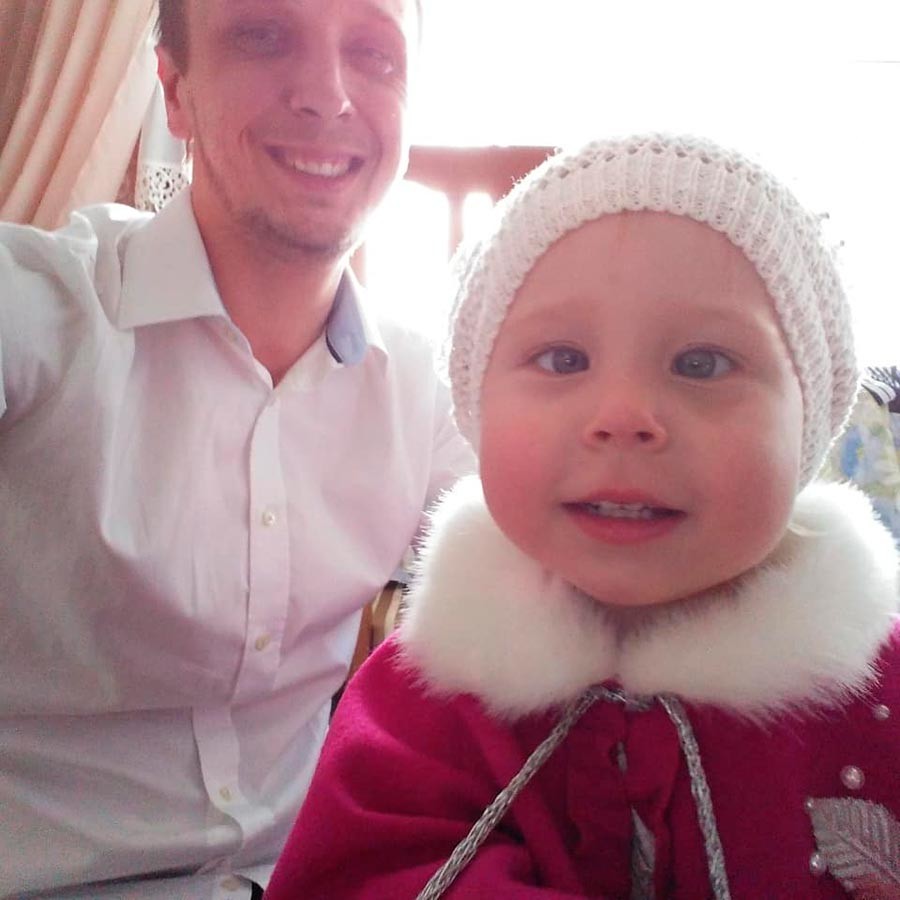
Vladimir does not deny that he also needs psychological support - for a long time he thought that no other woman would date him because of Sofia. He believes this is a problem not only for women, but also for men, who are less prepared for single parenting. He tried dating someone, but they broke up several months later, over "irreconcilable differences".
“Women often ask stupid questions: why did my wife leave me, what happened? They think it's my fault. I even thought of ordering a T-shirt with an inscription: 'Yes, it happens. No, I didn't drink and I didn't beat her, but shit happens.' Now the most important thing is to take care of my child, of her development, and at the same time try not to forget about myself either,” concluded Vladimir.
Drug addiction and hiding from social services
Valery Rubtsov, a disabled 48-year-old man from a small village in the Vologda Region, has been publishing his poetry and prose on the vk.com social network for several years now. He mainly writes about his faith in God, his love of nature, loneliness and the hope that he will soon find a loving home, and with it - peace and happiness. His poetry and prose also contain – albeit rather rare – references to his children, an 11-year-old daughter and a 12-year-old son, who he raises alone. He does not disclose their names. Very rarely too, he makes it clear that he has a drug addiction and that his disability status is a result of that addiction.
“It was in 2000. I was living in Moscow at the time. I developed a drug habit. A big and serious one. Once I injected a dodgy solution. The ambulance hardly managed to resuscitate me. Since then I have been diagnosed with 4th degree apraxia,” Valery says.
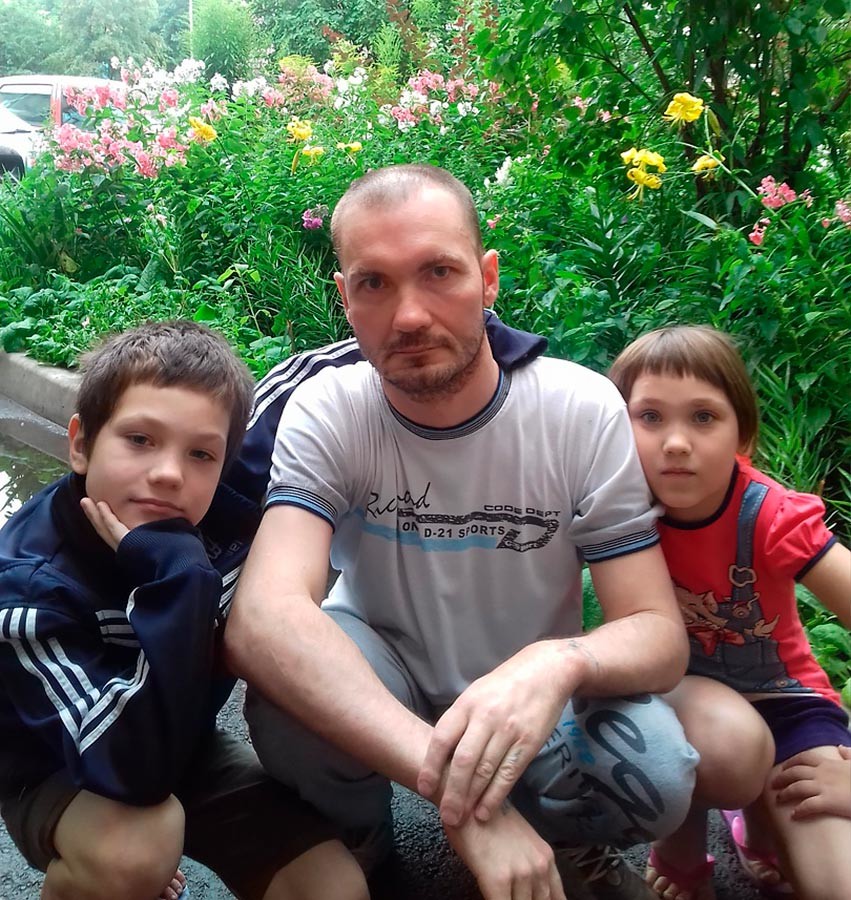
This medical condition didn’t prevent him from getting married and having two children. According to Valery, his wife also had an addiction, but to alcohol. Soon after the birth of their children, they divorced, and full custody went to his wife. However, in the summer of 2020 she realized that she could not cope any longer with the daughter.
“She shouted: 'Take your half-baked daughter! I can't take it anymore! She's uncontrollable! I packed her things and sent her to you. Wait. She’ll be there soon.' I was sitting on a chair and literally waiting, trying to realize what had happened. My daughter came and immediately began to put her things in the closet. She did it with great care and without any haste, carefully arranging everything on the shelves, trying to place everything as neat and proper as possible. This love of orderliness she gets from me. Then I realized it was time for me to quit drugs,” Valery recalls.
He says the first thing they did together was to furnish the adjacent room for her, and then they lived on his disability pension of 23,000 rubles ($320). Six months later, Valery felt like relapsing but on that very day, his former wife also brought him their son.
Valery taught both his kids to cook, because previously they did not even know how to make instant noodles.
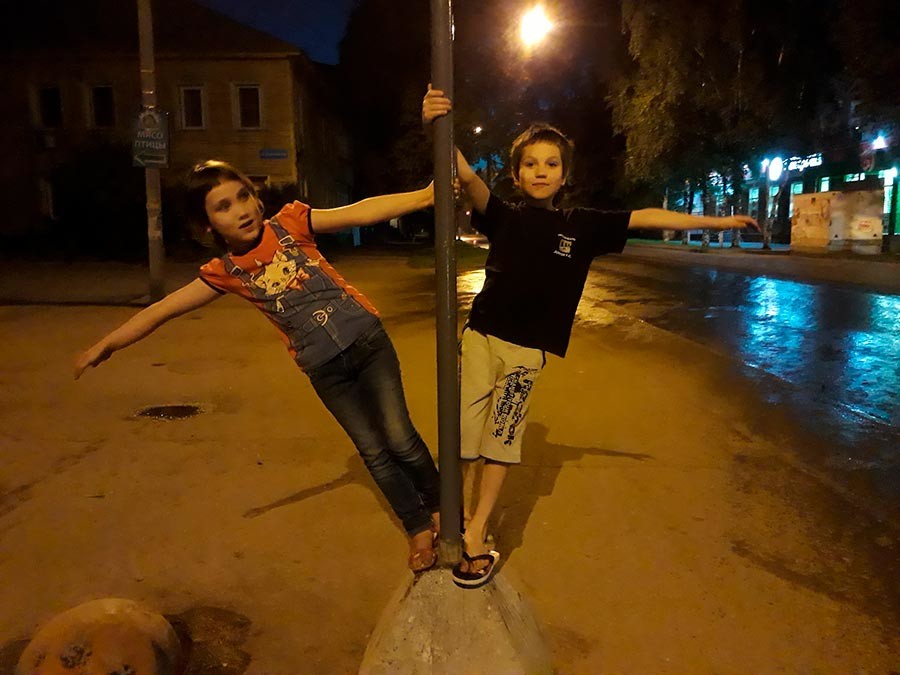
On a normal weekday, the children prepare breakfast for themselves and for their father and go to school. After school, the son does his homework, while Valery and the girl prepare lunch. Then they have lunch together; the son goes for a walk with his friends, while the daughter does her homework. Valery says that unlike her brother, she does not go for walks because she has no friends at school and she prefers to spend most of her time at home with her father.
“Whereas my son spends all his time running around with his friends. He nearly had to do the same year at school twice. I told him that if he does not pull himself together, he will go to live with his mother. This September he began to study better. I know that I do not help them with their studies. But, trust me, their mother did not help them with their studies either. Besides our two children, she has three more from her latest marriage. Her family is being monitored by social services. There is drinking and smoking at home there,” says Valery.
He claims that he hasn’t used drugs for a year and four months, that they have an ideal family, but at the same time he hopes and prays that social services remain unaware of his “ideal family”.
“I didn’t put in any official paperwork. I’m afraid social services may take my children away. But, you know, I've already been through the hardest part. The children are taking care of me, they are looking after me. To watch them grow and become more mature is true happiness. I want nothing more,” Valery says.
If using any of Russia Beyond's content, partly or in full, always provide an active hyperlink to the original material.
Subscribe
to our newsletter!
Get the week's best stories straight to your inbox